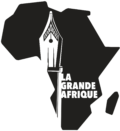Since 2021, one armed group in particular has stood out in the east of the Democratic Republic of Congo (DRC), where mineral wealth has fanned the flames of conflict. Known as the M23, this rebel movement is not new, and its origins date back to 2012. To understand the re-emergence of this rebel group, this article looks at the historical context of Africa’s Great Lakes region and the tumultuous political history of the DRC.
Peace Treated and the creation of the CNDP
The DRC has been the scene of decades of political instability and armed conflict, exacerbated by foreign interference, ethnic rivalries and the struggle for control of the country’s precious natural resources. After the genocide in Rwanda in 1994, many Hutus fled to Zaire (formerly the DRC), forming armed groups that continued to operate from Congolese territory. In 2002, a peace agreement, better known as the Global and Inclusive Agreement, was signed in Pretoria between the DRC government, Rwanda and various rebel groups, giving rise to new political parties and integrating some combatants into the Congolese army. However, rebel groups such as the Congrès National pour la Défense du Peuple (CNDP), led by Tutsi rebel Laurent Nkunda, have refused to comply fully with the agreement, denouncing the marginalization of Tutsis and human rights violations in eastern DRC.
Rise of the M23
In April 2012, a breakaway faction of the CNDP, led by Bosco Ntaganda, deserted the Congolese army, claiming that the government had failed to respect the terms of the 2009 peace agreement stipulating that all rebel groups be integrated into the Congolese army in order to end the war in North Kivu. The splinter group then adopted the name M23, in reference to the March 23, 2009 agreement that preceded their failed attempt to integrate into the Congolese army. They claimed that the government had not honored its commitments regarding salaries, military ranks and living conditions for former CNDP fighters.
2021, the return of the M23 to a conflict more than 25 years old
Since the end of 2021, the M23 rebels have rekindled the wounds of a long-running conflict in the east of the Democratic Republic of Congo (DRC). Their presence has been marked by a series of murders, rapes and other blatant war crimes, spreading terror among the civilian population. Attacks, particularly with explosive weapons, in densely populated areas of North Kivu province have caused civilian casualties, destroyed infrastructure and exacerbated an already alarming humanitarian crisis. Documented abuses, including unlawful executions and cases of sexual violence perpetrated by M23 fighters, have been corroborated by investigations carried out by Human Rights Watch and other organizations. Victims’ testimonies bear witness to the horror they have experienced, and to the M23’s determination to spread terror among civilians.
The M23 is said to be backed by Rwanda, which provides logistical and possibly financial support. The evidence put forward by the United Nations on this issue is extensive, including witness reports, satellite images and communications intercepts. This evidence seems to share the same fate as the findings of the 2010 Mapping Report on crimes committed in the DRC between 1993 and 2003, which, despite their relevance, remain largely neglected within the UN archives due to political challenges, geopolitical interests at stake and institutional obstacles hindering the quest for international justice. Despite this overwhelming evidence, the Rwandan government denies any involvement in supporting the M23, calling the allegations politically motivated. The Rwandan army’s direct military support for the M23 has enabled this rebel group to consolidate its hold on the neighboring territories of Rutshuru and Masisi. This foreign interference in the Congolese conflict has been strongly criticized, and calls have been made to the UN Security Council to sanction both the M23 leadership and Rwandan officials involved in this collaboration.
Despite denials by the M23 and the Rwandan government of their involvement in these crimes, damning evidence has been presented by the UN Group of Experts on DR Congo. Mediation efforts by the East African Community (EAC) and the African Union (AU) are aimed at resolving the crisis, but the humanitarian situation remains precarious, with hundreds of thousands of displaced people and increasing cases of sexual violence against women and girls, often going unpunished and untreated medically.
In this context, resolving the conflict in the DRC will require concerted efforts at both national and international level, with a firm commitment to justice, reconciliation and respect for human rights for all parties involved.

